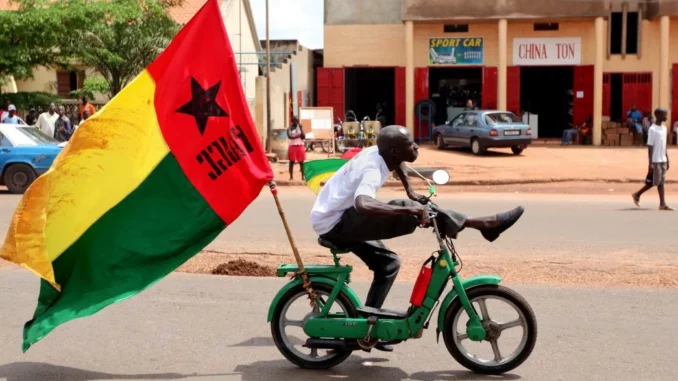
On Wednesday, December 6, the Bissau-Guinean army displayed an arsenal of automatic rifles, rocket launchers, and ammunition seized during what the authorities claimed was an attempted coup d’état between November 30 and December 1. In an interview with France 24, President Embalo accused the opposition of being behind the unrest.
The Chief of Staff, General Biague Na Ntam, presented dozens of rifles, some rocket launchers, and communications equipment to the press at the headquarters in Bissau. According to him, they were mainly seized from members of the National Guard during clashes between the latter and the army last week and during sweep operations in the days that followed.
For President Umaro Sissoco Embalo, interviewed on France 24 on Wednesday evening, this seizure proves that it was an attempted coup d’état: “There is no longer any threat” in Guinea-Bissau, he assures us, “we have everything under control.” The Guinea-Bissau president went on to accuse “the opposition of being behind this coup attempt,” in particular the Speaker of Parliament, who he claimed had “given instructions to the National Guard” “to go and free the ministers” involved in a corruption affair, and justified his decision to dissolve Parliament before the end of the constitutional deadline by the fact that there was a “deep crisis.”.
“I am a Democrat,” Umaro Sissoco Embalo insisted. In the coming weeks, he announced that there would be “a new government that will set new dates for early parliamentary elections.”
Parliament and its government, including the Interior Ministry, were dominated by the president’s political opponents. Domingos Simoes Pereira, President of Parliament and long-time opponent of the President, reiterated his opposition to the dissolution. “Despite the coup attempt, there can be no question of dissolving the National Assembly. Our Constitution is clear. Parliament cannot be dissolved within twelve months of its election,” declared Mr. Pereira after a meeting of the coalition led by his party, the African Party for the Independence of Guinea and Cape Verde (PAIGC), which has a majority in the National Assembly.
